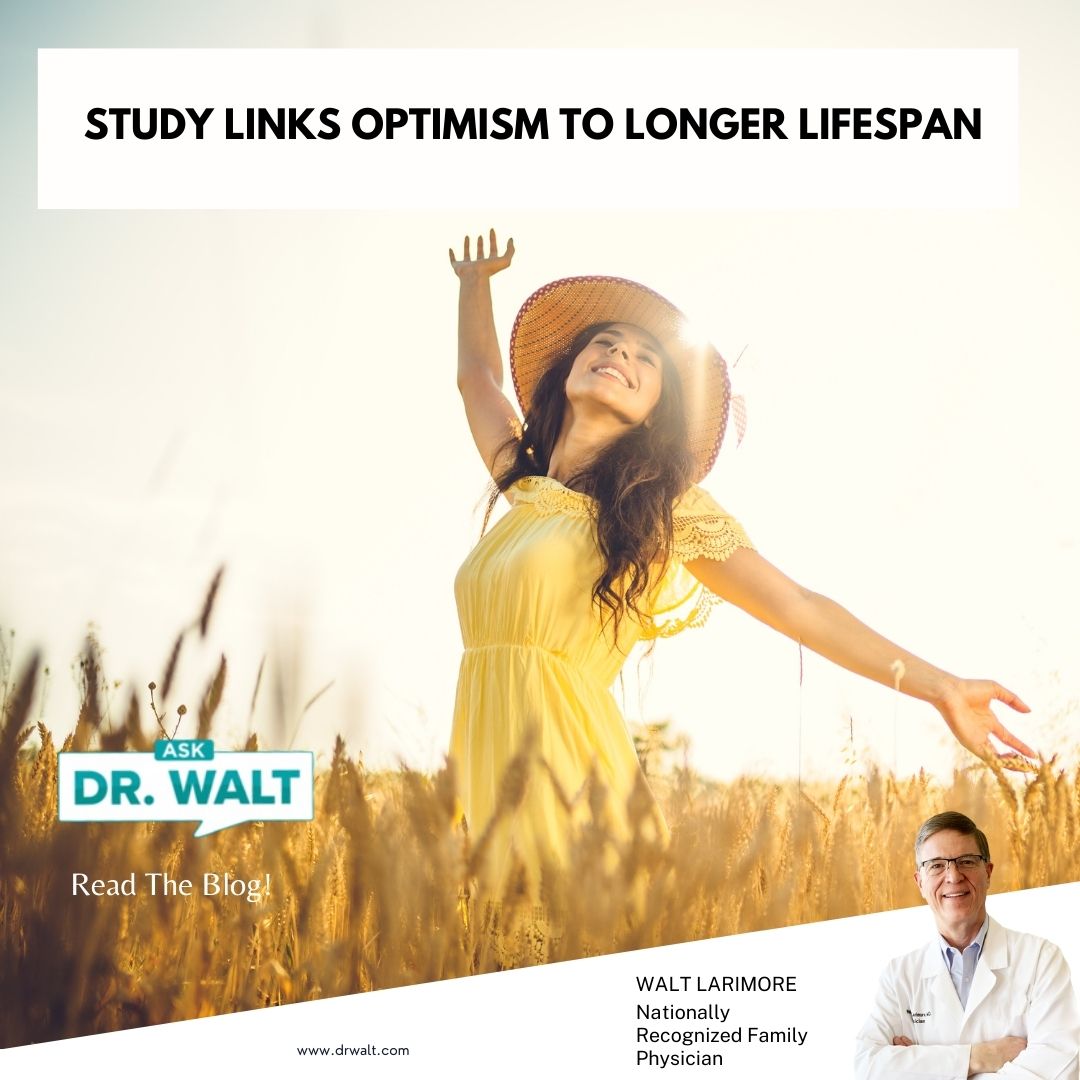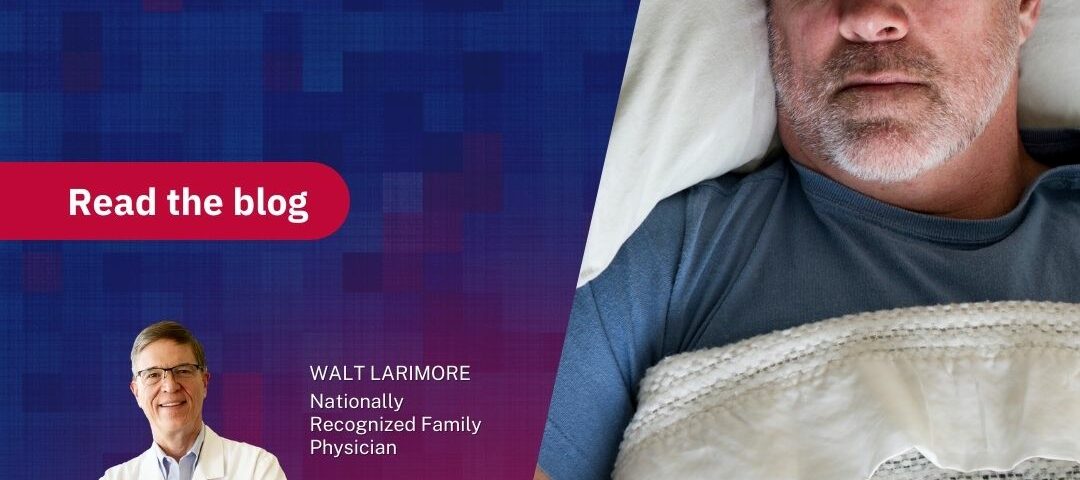
Study links optimism to longer lifespan
June 29, 2022
Monthly Family Update – July 2022
July 1, 2022Dear Dr. Walt, what are some tips to improve my sleep? —Wanting to Sleep More in Texas
Dear Slumber Seeker,
Here are some signs that you need improved sleep quality:
- It routinely takes you more than 30 minutes to fall asleep after getting into bed.
- You regularly wake up more than once per night.
- You find yourself staying awake for more than 20 minutes after waking up in the middle of the night.
- You spend less than 85 percent of your time in bed asleep.
If any of these are true for you, I’d suggest these “sleep hygiene” steps to improve sleep quality:
- Stop watching television or using electronic devices such as a laptop or cell phone at least 30 minutes before bedtime. The blue light emitted from these gadgets can make it difficult to fall asleep.
- Set your bedroom thermostat between 60 and 67 degrees Fahrenheit. Sleeping in a room that is either too warm or too cool interferes with your ability to drift off.
- Follow a consistent sleep schedule. Having poor bedtime habits, such as going to bed too early (before you’re tired) or too late (when you’re overly tired) can make it more difficult to sleep soundly.
- Create a relaxing prebedtime routine, such as taking a bath or reading a book. Brushing one’s teeth, putting on pajamas, and turning off the lights can be signals to the body that it’s time to secrete melatonin, the hormone that helps humans feel sleepy. One study showed people who regularly listened to music to fall asleep dozed off faster with music than without. Engaging in high-energy or stressful activities the hour or so before sleep lowers the odds of an easy transition to sleep.
- Limit your alcohol consumption to a maximum of one (women) or two (men) drinks per day because alcohol can disturb sleep.
- Avoid chocolate or caffeinated beverages within six to eight hours of bedtime, and no alcohol within three hours of going to bed. Some elderly folks may need to avoid these products up to eight hours before bedtime.
Other suggestions that can help:
- Be consistent. Get up at the same time each morning, including on the weekends.
- Make sure your bedroom is quiet, dark, and relaxing.
- Remove electronic devices, such as TVs, computers, and smartphones, from the bedroom.
- Avoid large meals before bedtime
- Being physically active during the day, but well before bedtime, can help you fall asleep more easily at night.
Two other interesting items have been found recently.
- First, bedtime worry, including worrying about incomplete future tasks, is a significant contributor to difficulty falling asleep. Simply taking a moment to write or journal about your worries can help you fall asleep. The more specifically you write your to-do list, the faster you’ll fall asleep. In other words, writing down worries can stop worrying that can wake you during the night, reduce stress levels, strengthen your memory, and eliminate distractions.
- Second, a small study reported that flannel pajamas might actually help sleep, possibly by better regulating body temperature.
Also see my blog from yesterday, June 29, 2022, “Research highlights the best insomnia therapies.”
Last, but far from least, is the fact that improving your spiritual health may improve your sleep.
Researchers report that those who believe in salvation and feel they have an unshakable relationship with God tend to sleep longer, fall asleep faster, and feel more rested in the morning.
This makes intuitive sense. People who believe they’re secure in their personal relationship with God and will go to heaven when they die simply sleep better.
In addition, regular church attendees seem to cope better with negative life events, and, ultimately, have better quality sleep.
In addition, frequent reading of Scripture, prayer, journaling, and being grateful for one’s blessings can also reduce stress and facilitate sound sleep.
Like all people, Christians may not understand why misfortunes or storms occur but nevertheless sleep better at night knowing that they are under the watchful eye of a Father in Heaven who, at the end of each day, remains deeply concerned with our eternal well-being.
© Copyright WLL, INC. 2022. This blog provides healthcare tips and advice that you can trust about a wide variety of general health information only and is not intended to be a substitute for professional medical advice, diagnosis, or treatment from your regular physician. If you are concerned about your health, take what you learn from this blog and meet with your personal doctor to discuss your concerns.




